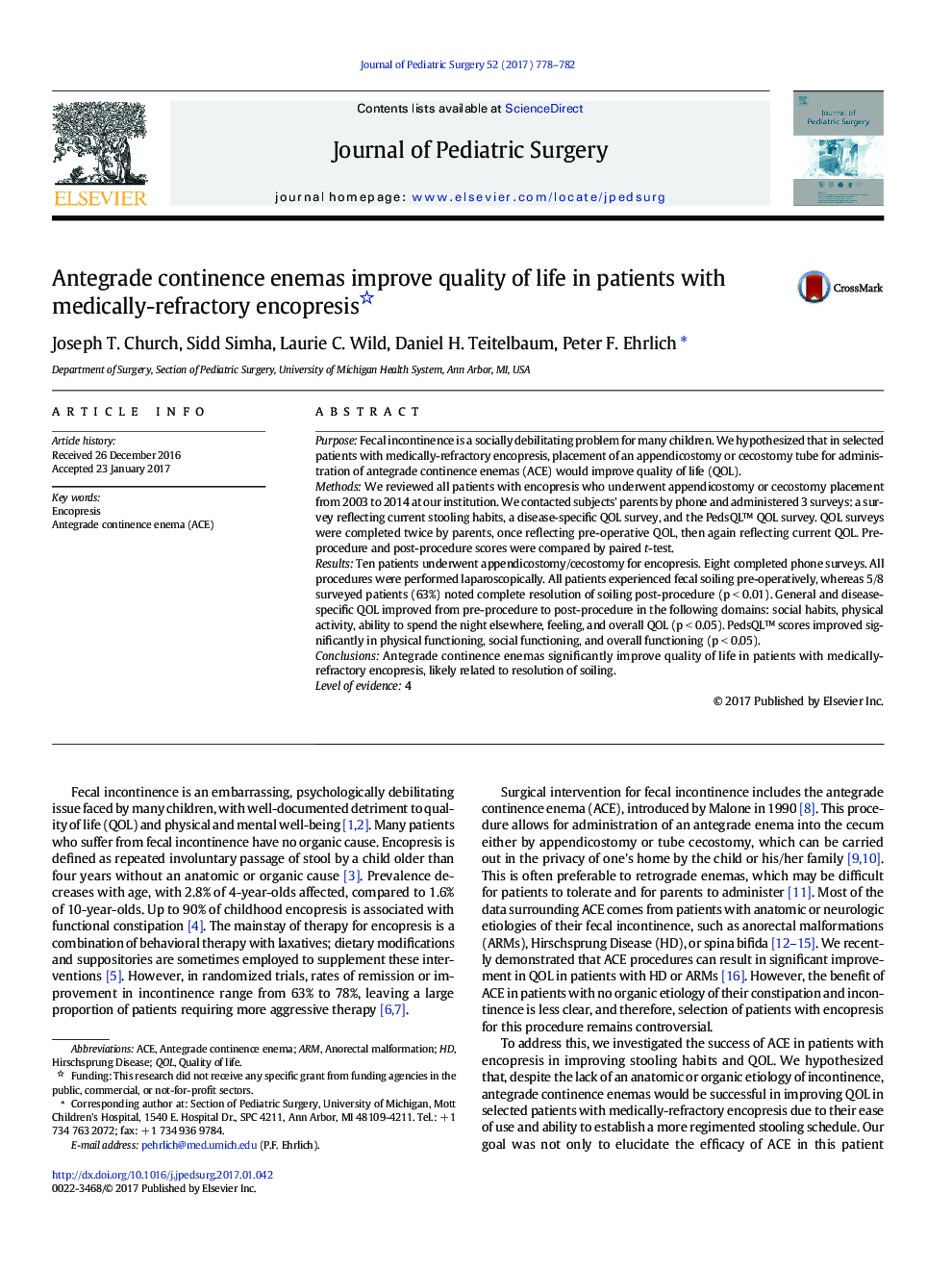| Article ID | Journal | Published Year | Pages | File Type |
|---|---|---|---|---|
| 5718463 | Journal of Pediatric Surgery | 2017 | 5 Pages |
PurposeFecal incontinence is a socially debilitating problem for many children. We hypothesized that in selected patients with medically-refractory encopresis, placement of an appendicostomy or cecostomy tube for administration of antegrade continence enemas (ACE) would improve quality of life (QOL).MethodsWe reviewed all patients with encopresis who underwent appendicostomy or cecostomy placement from 2003 to 2014 at our institution. We contacted subjects' parents by phone and administered 3 surveys: a survey reflecting current stooling habits, a disease-specific QOL survey, and the PedsQL⢠QOL survey. QOL surveys were completed twice by parents, once reflecting pre-operative QOL, then again reflecting current QOL. Pre-procedure and post-procedure scores were compared by paired t-test.ResultsTen patients underwent appendicostomy/cecostomy for encopresis. Eight completed phone surveys. All procedures were performed laparoscopically. All patients experienced fecal soiling pre-operatively, whereas 5/8 surveyed patients (63%) noted complete resolution of soiling post-procedure (p < 0.01). General and disease-specific QOL improved from pre-procedure to post-procedure in the following domains: social habits, physical activity, ability to spend the night elsewhere, feeling, and overall QOL (p < 0.05). PedsQL⢠scores improved significantly in physical functioning, social functioning, and overall functioning (p < 0.05).ConclusionsAntegrade continence enemas significantly improve quality of life in patients with medically-refractory encopresis, likely related to resolution of soiling.Level of evidence4
